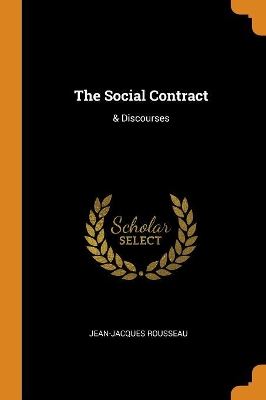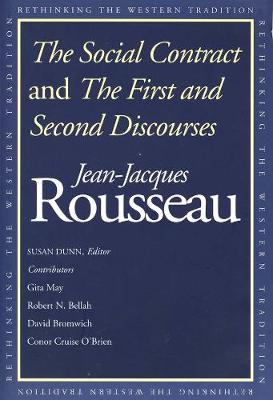Rethinking the Western Tradition
3 total works
"Man was born free, and he is everywhere in chains"
These are the famous opening words of a treatise that has not ceased to stir vigorous debate since its first publication in 1762. Rejecting the view that anyone has a natural right to wield authority over others, Rousseau argues instead for a pact, or 'social contract', that should exist between all the citizens of a state and that should be the source of sovereign power. From this fundamental premise, he goes on to consider issues of liberty and law, freedom and justice, arriving at a view of society that has seemed to some a blueprint for totalitarianism, to others a declaration of democratic principles.
For more than seventy years, Penguin has been the leading publisher of classic literature in the English-speaking world. With more than 1,700 titles, Penguin Classics represents a global bookshelf of the best works throughout history and across genres and disciplines. Readers trust the series to provide authoritative texts enhanced by introductions and notes by distinguished scholars and contemporary authors, as well as up-to-date translations by award-winning translators.
Social Contract and the First and Second Discourses, The. Rethinking the Western Tradition.
by Jean-Jacques Rousseau
The Social Contract and The First and Second Discourses
by Jean-Jacques Rousseau
Susan Dunn's introductory essay underlines the unity of Rousseau's political thought and explains why his ideas influenced Jacobin revolutionaries in France but repelled American revolutionaries across the ocean. Gita May's essay discusses Rousseau as cultural critic. Robert N. Bellah explores Rousseau's attempt to resolve the tension between the individual's desire for freedom and the obligations that society imposes. David Bromwich analyzes Rousseau as a psychologist of the human self. And Conor Cruise O'Brien takes on the "noxious," "deranged" Rousseau, excoriated by Edmund Burke but admired by Robespierre and Thomas Jefferson. Written from different, even opposing perspectives, these lucid essays convey a sense of the vital and contentious debate surrounding Rousseau and his legacy.
For this edition Susan Dunn has provided a new translation of the Discourse on the Sciences and Arts and has revised a previously published translation of The Social Contract.


